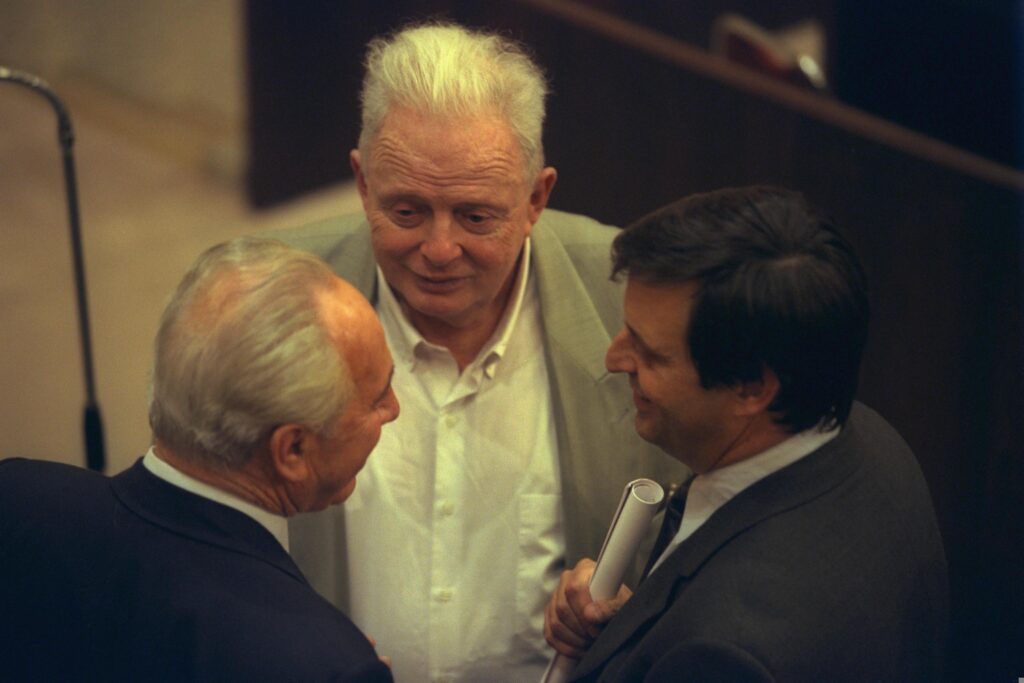December 4, 2004
Shinui, led by Israeli television personality Tommy Lapid, breaks with Prime Minister Ariel Sharon’s government after voting against a 2005 budget in which Sharon restores 290 million shekels for Haredi (ultra-Orthodox) education.
Lapid complains that the government lacks funds for many basic needs but is willing to “give matza balls to rabbis.” After his budget fails to pass because of the defection of the 15 Shinui lawmakers, Sharon summons the five Shinui members serving as government ministers and hands each a prepared, one-sentence letter firing the minister from office. Sharon says the Shinui members are motivated by a “hatred of Haredim and everything Jewish.”
With the 15 Knesset seats it won in the 2003 election, Shinui is the third-largest party in the Israeli parliament. Sharon invited the secular, liberal party to join his Likud-led coalition and hold five ministerial positions in the government. Sharon was counting on Shinui’s support for his planned disengagement from Gaza.
Shinui leaves the coalition after the departure of the National Religious Party, which quit in November to protest the planned Gaza withdrawal. The departure of both parties leads Sharon to form a national unity government with the Labor Party in January 2005.










